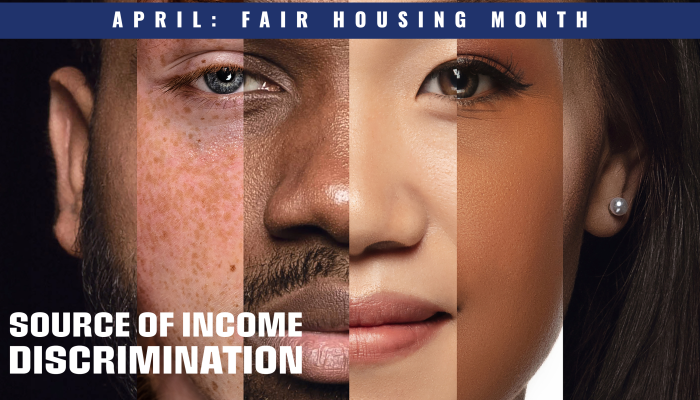Lynette and her sister served in the U.S. armed forces. Following their discharge, they returned home to Philadelphia and began their search for an apartment.
During their search, there was a landlord who requested that they provide proof of their income. Being just discharged, the pair had received monies from the government and did have the ability to pay the monthly rent. The landlord told them they couldn’t rent unless they could show paystubs from a current employer. This is a form of discrimination based on the Fair Practices Ordinance (FPO).
Source of income discrimination is a refusal to rent to an applicant because of an unwillingness to consider certain types of income in qualifying a person for tenancy. A common type of source of income discrimination is the refusal to rent to applicants who receive rental assistance or a Housing Choice Voucher (Section 8). When rental housing providers refuse to accept housing vouchers and other types of public financial assistance as valid income it makes it difficult for low and moderate-income individuals and families to find housing.
“When property owners refuse to rent, sell, or lease to families who utilize housing vouchers, they are engaging in unlawful conduct that is a direct violation of the FPO” says Philadelphia Commission on Human Relations (PCHR) Executive Director, Kia Ghee. “Despite the undeniable benefit of the housing choice voucher program, there are still families who are unlawfully denied the opportunity to rent in the neighborhoods of their choosing.”
Under the City of Philadelphia’s FPO, remedies for source of income discrimination can include a cease-and-desist order, injunctive or equitable relief, compensatory or punitive damages, and attorneys’ fees and other expenses. Over the last 5 years, the Commission has received dozens of complaints against landlords and brokers across the city of unlawful discrimination based on source of income. The Commission has garnered over $20,000 in damages and penalties for complainants who have faced source of income discrimination. The Commission has also successfully negotiated case resolutions in which landlords agree to adopt written policies against discrimination, receive annual training on compliance with the Fair Practices Ordinance, and encourage tenants with Housing Choice Vouchers to apply.
Advertising that an individual “must have a job” to rent, or requiring documentation that is only available to working applicants, like paycheck stubs is against the law. It is also unlawful for a landlord to state that they don’t accept Section 8.
While Lynette and her sister could file a complaint with the PCHR, ultimately, they looked elsewhere and were able to find acceptable housing.
If you feel as if a landlord has violated this policy, contact PCHR to get more information.




